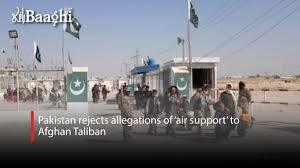AfPak takes on a new meaning with the rise of the Taliban
By James M. Dorsey Recent attacks on Kabul’s international airport by the Islamic State’s Afghan affiliate raise multiple questions as well as the spectre of paradigm shifts in the drivers and expanding geography of political violence. The attacks have called into question the Taliban’s ability to maintain security and keep a lid on the activities of multiple militant groups in Afghanistan. Long at war with the Islamic State (IS), the Taliban have promised to ensure that neither IS nor groups with which it maintains good relations will be allowed to use the Central Asian state for cross border attacks in the region. That may be easier said than done even though Al Qaeda, which launched the most spectacular and successful of jihadist attacks on 9/11 almost two decades ago, may turn out to be the least of the Taliban’s jihadist worries. Analyst Abdul Sayed noted that Al Qaeda, in an effort to prevent the United States from driving it out of Afghanistan and Pakistan, has “ shi





